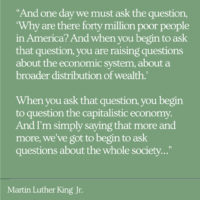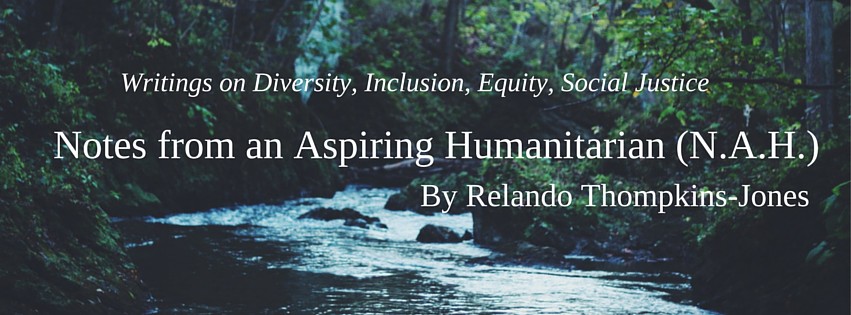I have taught at the graduate and undergraduate level in schools of Social Work involving Multicultural Social Work Practice, Intergroup Dialogue, and other topics in Macro Social Work. I have also taught in other schools such as Education and Interdisciplinary Studies. Below you will find a listed courses that I have taught or am currently teaching.
I write about and share resources related to lessons I’ve learned while teaching or facilitating workshops in the Teaching and Tips from Relando sections of my blog.
Learn more about my teaching philosophy.
IDS 180, Intergroup Dialogue
Brooks College of Interdisciplinary Studies at Grand Valley State University, Allendale MI
Course Description:
Intergroup Dialogue creates a space in which difficult but less inhibited conversations about social identities— such as race, gender, sexuality, gender identity, religion, and others can take place. The dialogue will increase intergroup learning, build new experiences with social action, increase knowledge about the social identity groups of self and others, and reduce stereotypes and prejudice.
Students create a shared sense of meaning about the issues at stake created in the dialogue and take some larger or campus community social justice action to reduce barriers to intercultural relationships.
Semesters Taught: Winter 2018
SW 504, Diversity and Social Justice in Social Work
University of Michigan School of Social Work, Ann Arbor MI
Course Description:
This required foundation course is designed to increase students’ awareness, knowledge, and critical skills related to diversity, human rights, social and economic justice.
The topics of this course include developing a framework for 1) engaging diversity and differences in social work practice and 2) advancing human rights and social and economic justice. We will explore the knowledge base that underlies skills needed to work towards justice.
These include types and sources of power, multiple social locations, social constructions, social processes, social identities, conflicts, and how all these interact. A major emphasis is on developing skills in critical contextual thinking and analyses, and in praxis, learning to use knowledge and theory to recognize and critique underlying assumptions and paradigms, and inform working for change.
Multiple kinds of boundaries are especially important—across groups, between organizations and system levels, and within and between people, related to intersecting social locations.
Semesters Taught: Fall 2015
SW 799, Advanced Topics in Macro Social Work: Understanding Diversity and Social Justice Through Dialogue
University of Michigan School of Social Work, Ann Arbor MI
Course Description:
This course is designed to increase students’ awareness, knowledge, and understanding of issues related to diversity and social justice, including race, ethnicity, class, gender, religion, sexual orientation, age, ability status, and the intersections between these social identity groups.
Additionally, students will gain an understanding of dialogue as a method for peacefully resolving conflict that may emerge due to cultural misunderstandings or oppressive dynamics, as well as skills for effectively engaging in dialogue.
The topics of this course include social identity development; difference and dominance and the nature of social oppression; our personal and interpersonal connections to power, privilege, and oppression; understanding and resolving conflicts or resistance; the process of dialogue and coalition building across differences; and its applications in multicultural social work settings.
Semesters Taught: Winter 2019, Fall 2018, Winter 2018, Fall 2017, Summer 2017, Winter 2017, Fall 2016, Winter 2016, Fall 2015, Winter 2015, Fall 2014, Winter 2014, Fall 2013
SW 406, Social Work Practice II
Social Work Program at Oakland University, Mt Clemens MI
Course Description:
This course is designed to provide knowledge and understanding of macro social work with task groups, organizations, and communities, contributing to skills necessary for generalist practice.
The student will learn the importance of thinking about clients and their problems in ways that incorporate the client’s larger environment, recognizing the ways communities, organizations and groups operate from political, economic and social perspectives.
Problems of discrimination, social injustice, and institutional racism are addressed.
Semesters Taught: Winter 2016, Winter 2015
SW 318, Foundations for Multicultural Social Work Practice
Social Work Program at Oakland University, Rochester MI, Mt Clemens MI
Course Description:
This course prepares students to work with multicultural and diverse populations, both locally and nationally. Multicultural and diverse populations include gender, ethnicity, race, national origin, sexual orientation, social class, physical and mental ability, age, and religion, among others.
Emphasis will be placed on defining and developing skills for culturally competent social work generalist practice with diverse populations through students’ self-examination, experiential learning, and critical reading of class material.
This course aims to help students develop competencies in critical self-reflection, multicultural values and ethics, knowledge, awareness and a variety of other skills so that they can recognize and effectively oppose manifestations of social injustice.
Semesters Taught: Fall 2015, Fall 2014
SW 316, Fundamentals Of Social Work Practice
Social Work Program at Oakland University, Rochester MI
Course Description:
This course provides students with a foundation in basic generalist social work practice skills including, professionalism of the field, NASW code of ethics, the development of the helping relationship, empathy listening skills, basic interviewing techniques and the problem solving process and groups.
Students also learn the tasks, concepts and principles of social work case management with special populations such as older adults, the developmentally disabled and persons with chronic mental illnesses.
Using strengths- based, empowerment model, the core functions of case management in a wide range of community-based settings are explored as students are prepared for subsequent practice classes and the field internship.
Students are introduced to evidence based practice and evaluation practice and develop critical thinking skills that facilitate defining problems, determining need, establishing goals and assessing outcomes.
Semesters Taught: Winter 2016











